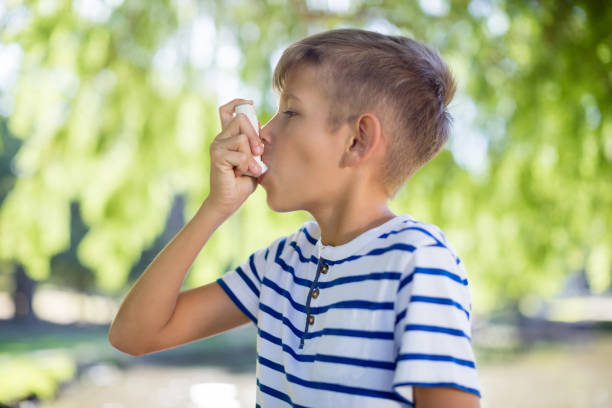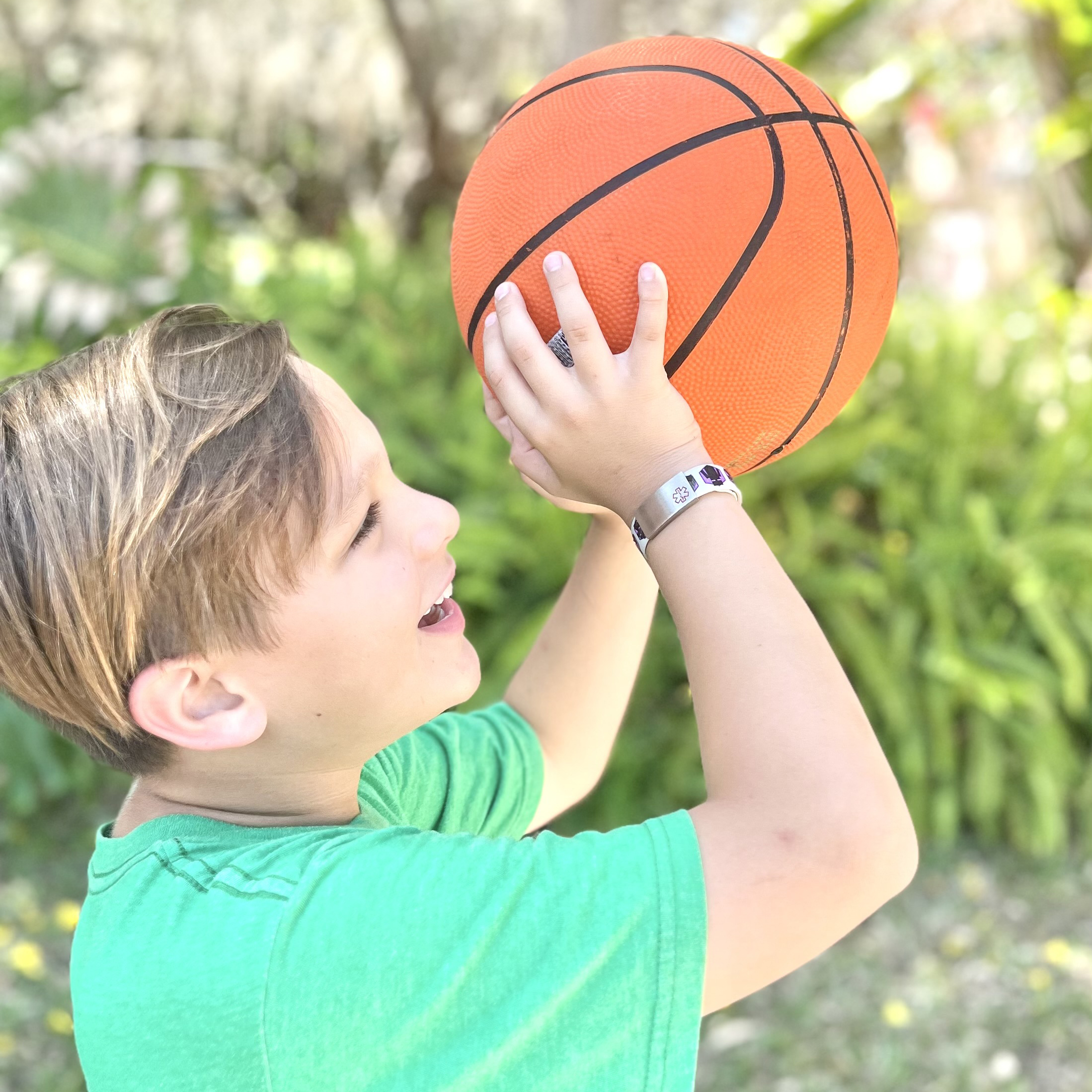5 Ways to Encourage Your Child to Take Their Medical Condition Seriously
Posted by Barry Torman on 10th Apr 2023
5 Ways to Encourage Your Child to Take Their Medical
Condition Seriously
He won’t wear his Medical ID bracelet because it gets called out by his friends at school. She doesn’t want to take her meds every day because it tastes bad or makes her gag. Taking charge of their health is the last thing on their minds when they have homework, soccer practice, and a social life to maintain.
So how can you as a parent get your child to stay on top of their medical care? Nothing feels worse than knowing your child might be in danger because he isn’t careful enough. You can’t be there to protect them 24/7, so trusting them to protect themselves is essential. But, the burden doesn't need to be entirely on your shoulders. Here are some tips on how to make sure your child takes his medical condition seriously.
Educate her in a way she understands.
There’s a fine line you walk when it comes to informing your child about the risks of their condition. You don’t want to scare them so much that they develop anxiety. But you also want to be truthful about what consequences they might face if they aren’t careful. It all comes down to educating your children in their own language. And, if you don’t know how to get through to them on your own, it’s okay to use other resources to do so.
A great way to inform your children about their diagnosis is through media. For younger children, there are tons of books out there about every condition you can imagine. Some of them even feature characters your kids already know and love. The beloved PBS show Daniel Tiger has some great books about coping with food allergies. Calliou has a children’s book about Type 1 Diabetes. There’s also helpful kids' content about epilepsy, asthma, hearing impairment, and more.
For older children, check out YouTube for helpful videos about their medical condition. They might actually enjoy getting the information in this way. Of course, make sure that the videos are from a trusted source. And don’t let them go down a rabbit hole that will give them more to worry about. Provide them with resources that will educate them without feeling like a chore.
Incorporate their interests into their medical care.
One of the best ways to get your child to connect with his condition is by using his hobbies and interests as a tool. You know your child best. How can you use what he already loves to inspire him to care about his health?
Does he hate his medical ID bracelet? He doesn’t have to. It can actually be something he gets excited to put on. Sticky J offers a great collection of medical IDs for kids, including their new line of Minecraft bracelets. They come in a variety of colors and feature beloved characters from the game. Even children who don’t play Minecraft fall in love with the fun designs. Medical IDs like these allow your child to express himself. The fact that it helps keep them safe will become an afterthought. All they’ll care about is showing it to their friends.
Is he wary of talking about his condition? Some of his heroes might have the same health issue as he does. Selena Gomez has lupus. David Beckham has asthma. Nick Jonas has Type 1 diabetes. Remind him that people he already admires are struggling too. If he knows that they are speaking up about it, maybe he will want to as well. It might encourage him to be more vocal with his friends about his healthcare. Celebrities aren’t shy about advocating for themselves. He might try to follow their lead.
Create a positive association with taking medicine.

You can even use their interests to get them to take their medication. Certified behavior analyst Kara Destremps suggests using positive reinforcement when it comes to that. She says, “try to make the experience of taking medicine fun so that it is associated with good things for the child.” Her students often “earn” access to things they like when they successfully take their medication.
If your son likes baseball cards, reward him with one every time he takes his medicine without complaining. If your daughter is obsessed with Mario Kart, offer her ten minutes of game time as a motivator. If you aren’t comfortable offering rewards in this way, allow them to take the medicine alongside their favorite food or drink. And always make sure to give them praise (“you did such a great job taking your medication today!”). Creating this type of positive association is important in getting your child to actually enjoy the experience. When they enjoy the experience, they won’t complain about doing it.
Set her up with a community of kids who get it.
It’s common for kids to be ashamed of their medical condition. They will do anything they can to avoid being singled out or exiled from their social circle. And if that means sacrificing their health, so be it. But what if they had the support of other kids their age who are struggling with the same problems? A medical diagnosis doesn’t have to mean your child is a social pariah. Sure, they might not be able to eat a piece of cake at a birthday party or play on the basketball team, but this doesn’t mean they can’t have community.
Studies have shown that enrolling your child in a peer support group can help him cope with his condition and improve his quality of life. Having friends who understand what he is going through is so important. If his friends are taking control of their health, he will too. Don't underestimate the power of social influence.
If your child isn’t interested in the idea of a peer support group, there are tons of ways to make sure they find community. There are a variety of summer camps that cater to children with different medical conditions. There are programs for celiac disease, diabetes, neuromuscular disorders, epilepsy, cardiovascular issues, and more. At these camps, the focus isn’t always on the medical condition itself. Many of them offer confidence-building activities like horseback riding, crafts, and swimming. It's all about bringing children together and fostering a supportive community.
These types of programs can help your child connect with their condition in a way that isn’t possible in their normal environment. It might even help get them excited to share their experience with those around them.
Take care of yourself.

Parenting a child with a chronic illness is scary and stressful. It’s natural to worry. But the more anxious you are, the more likely your child is to pull away from you. It’s natural for kids (especially preteens and teenagers) not to take their parents' advice. And if they don’t feel totally comfortable around you, they’re even less likely to listen. You have their best interests in mind, but if you can’t control your anxiety, it will be hard for you to help.
Consider joining your own support group to get tips and tricks from other parents. It can be helpful just to talk about how you’re feeling with people who understand. If support groups aren’t your thing, look into booking an appointment with a counselor or therapist. A professional can give you proven techniques to help relieve stress. You might also try meditation, exercise, or engaging in your own hobbies. You can’t keep your kid healthy if you aren’t healthy as well. So make sure you are treating yourself with kindness and respect so you can be the parent you want to be.
Check out StickyJ’s blog for more information about medical IDs and how they help keep your child safe. And make sure to take advantage of our email promotions. Sign up to receive our marketing emails. All of them come with special discount offers to save you money. And, every once in a while, take a deep breath and tell yourself, “I’ve got this.”





